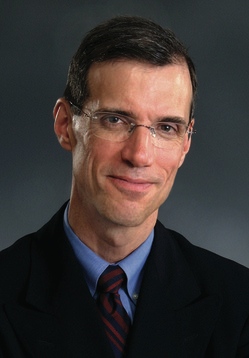
The following piece was provided by State Sen. Will Brownsberger, who represents Watertown, Belmont and parts of Boston:
The Senate Ways and Means Committee just released a bold, thoughtful and comprehensive package of bills designed to accelerate our move away from fossil fuels. The package is being well-received by many environmental leaders and I look forward to voting for it very soon.
Back in 2008, I had a hand in passing the Global Warming Solutions Act which set the state on a course to reducing greenhouse gas emissions 25% by 2020 and 80% by 2050. The present package recognizes the latest science and amends the GWSA to set a stronger long-term target – net zero emissions in 2050.
The package makes the planning process stronger by making the emission reduction targets more detailed: It requires definition of stringent short and medium term targets for each sector of the economy. It also requires more timely reporting on progress.
The package mandates that the Secretary of Environmental Affairs implement “market based compliance mechanisms” to achieve emission reduction goals. “Market based compliance mechanisms” include carbon fees and cap-and-trade systems that put a price on carbon emissions. Most economists believe that this is the most effective kind of approach to transforming our economy – letting people and businesses make their own price-informed choices in the market as to how to reduce emissions.
The Governor is already using his authority under the original GWSA to create a cap-and-trade system for pricing carbon emissions from transportation fuels. The package would require him to move forward to also price carbon emissions from the commercial, industrial, institutional and residential sectors.
The package makes other thoughtful changes to our energy/climate regulatory structure. For example, it would create a new Climate Policy Commission comprised of respected independent experts who would offer regular unbiased assessments of our progress in reducing emissions.
The package will also accelerate the transition to electrified vehicles. It makes permanent in statute the existing program to offer incentives for purchasing zero-emission vehicles. It requires that the building code mandate electrical service to support charging stations in new construction of parking facilities with over 10 spaces.
It also requires the state to migrate its fleet to zero-emission vehicles (to the maximum extent possible) starting in 2024, and mandates that the MBTA start migrating its bus fleet in 2030 to complete a migration by 2040. Most of us would like to see a swifter migration of the bus fleet, but our cold weather tests the limitations of current battery technology for bus service.
The following pair of statistics shows the central importance of these provisions related to electric vehicles: Vehicles registered in Massachusetts drive approximately 60 billion miles per year, but all of our transit agencies in the state together account for under 2 billion passenger miles traveled per year.
We can aspire to car free urban areas and we should support improved public transportation as a congestion reduction strategy. But 30 years from now, many people will still be dependent on automobiles and if we are to achieve zero net-emissions, most of those vehicles will have to be electric.
Finally, the legislation includes appliance efficiency rules which are designed to counter the weakening of federal regulations that occurred recently.
Officials from a number of environmental organizations have already weighed in with strong statements in support of the legislation. Their organizations include the Massachusetts Sierra Club, the Northeast Clean Energy Council, the Environmental League of Massachusetts, the Acadia Center, Mass Climate Action Network and the Conservation Law Foundation.
The package is the brain child of Senator Mike Barrett. He has assembled the best ideas available in legislation filed by other senators and through long study has added a number of very creative concepts of his own. Our Ways and Means Chair, Senator Mike Rodrigues, has done a great job refining the package and building consensus around it. All of this progress has been made under the positive direction of Senate President Karen Spilka.
I feel fortunate to have such competent colleagues whose values align with my own and who have done the work necessary to put such a strong package on the floor.
Resources
- S2476, An Act to accelerate the transition of cars, trucks and buses to carbon-free power (or see Senate Ways and Means Summary)
- S2477, An Act setting next-generation climate policy (or see Senate Ways and Means Summary )
- S2478, An Act relative to Energy Savings Efficiency (Energy SAVE)
(or see Senate Ways and Means Summary ) - Senate Press Release — includes additional detail and quotes from agencies and officials